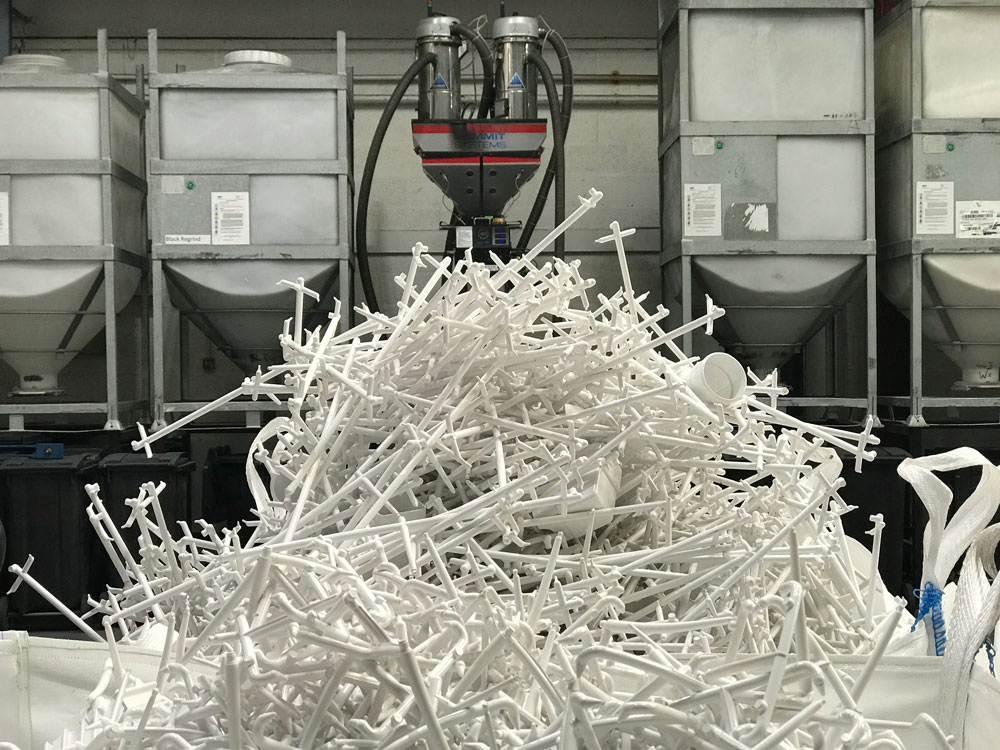Swish furthers PVC sustainability with End of Life Recovery plans
March 09, 2021 at 9:59 AM
Against the backdrop of PVC building materials’ reliance on plastic-based components for successful manufacture, Swish has chosen to champion more sustainable production routes, with the implementation of ‘End of Life Recovery Systems’ for all our PVC products.

In a move designed to reduce landfill and ensure an increasingly sustainable future for the industry, we actively operate an ethos that supports better management of used PVC materials and enables successful repurposing.
“Formulated correctly, PVC products can be recycled many times over,” Alan Tunnicliffe, Process Improvement Manager from Swish Building Products explains, “as the recycling method required does not measurably damage the chain length of the PVC molecules.
“The process can prove extremely successful and can enable pre-used products to be repurposed several times.”
Since 2010, we have been enhancing our PVC End of Life Recovery System and have worked to realise our sustainable goal using ethics and guidelines proposed by VinylPlus®.
An initiative built on the achievements and results of Vinyl 2010 and the principles of Responsible Care® adopted by the European chemicals industry in the late 1980s, the VinylPlus® scheme focuses on a 10-year programme to make the PVC industry increasingly sustainable. The initiative concentrates on; minimising the environmental impact of production; promoting the responsible use of additives; supporting collection and recycling schemes; and encouraging a dialogue amongst all the industry's stakeholders.
With committed companies such as Swish Building Products on board, the VinylPlus® scheme succeeded in recycling 740,000 tonnes of PVC materials in 2018 and subsequently aims to recover over 100,000,000 tonnes every year moving forward.
“We wholeheartedly support, the VinylPlus® commitment to sustainably developing Europe’s PVC industry as it improves the material’s viable performance and enables longer lasting usage in the first instance; before going on to be recycled multiple times. We’re proud to be playing our part within the programme and are using research and investment to put the Swish name on the VinylPlus® sustainability map,” Alan continues.
As with all thermoplastics, PVC can be re-shaped into a variety of new products. Supporting the concept, we achieve our material repurpose process by granulating and pulverising pre-used items to create a fine powder, which is then fed into an extruder, melted, and successfully reformed. Typically, we recycle our post-consumer PVC windows to create rainwater products, including high quality gutters and downpipes.
“We’ve experienced marked success with our recycling programme”, Alan adds. “By pitching our products’ manufacturing quality at the higher end, our reformed building materials are not only superior and built to last longer, but offer greater onward recycling potential, time and again.
“We’ve every intention of continuing our recycling processes, however, also believe that within the sector as a whole, more in terms of repurposing pre-used materials can be done.
“Although we’re still at the research stage, we’re now extending our sustainability remit to explore ‘End of Life Recovery’ for foam profiles.
“Our hope is that the budding market for recycled foams continues to advance and that as an UK innovator in the field, we can experience further sustainable success within this environmentally vital arena.”
With our focus firmly placed on developing PVC to be a longer-lasting and highly reusable material for the future, our team is fully committed to creating a more sustainable outlook for Swish Building Products, and the wider construction industry it supports.